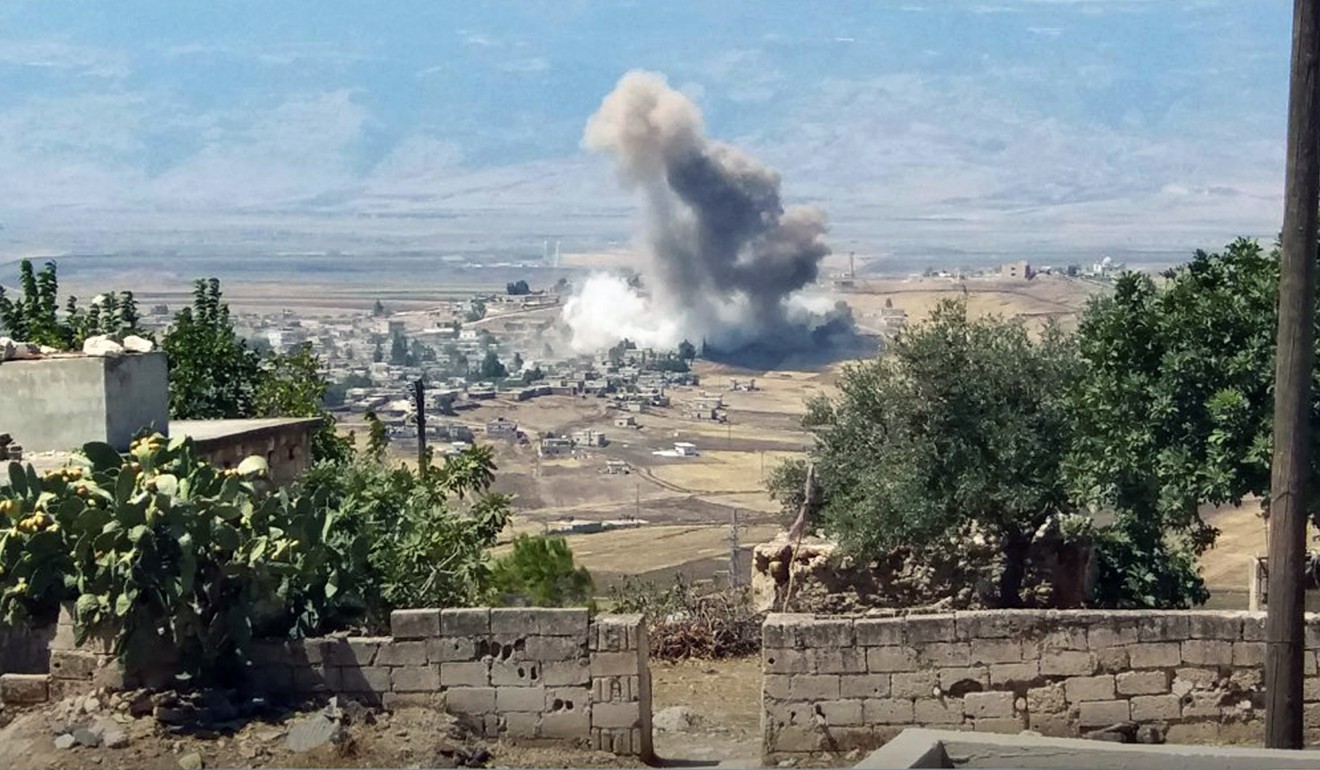
US lacks leverage as assault on Syrian enclave looms
Moscow warns Syria’s so-called White Helmets will stage a ‘provocation’ to justify Western intervention in the conflict

Despite dire US warnings and fears of a humanitarian disaster, there is not much President Donald Trump’s administration can do to stop Russia, Iran and Syria pressing ahead with a military assault against Syria’s northwest Idlib province.
Washington has threatened military action in case of a chemical weapons attack but its mixed messaging on retaining a US presence in Syria and a cut in aid has diminished its already limited influence over the seven-year conflict.
Russia on Saturday said it had “irrefutable information” Syrian rebels, who are backed by Washington, were planning an imminent “provocation” in Idlib to justify Western intervention.
The administration, which criticised former president Barack Obama for his inaction on Syria after the war started in 2011, risks appearing powerless to prevent the three nations’ plan to retake Syria’s last rebel-held area. It’s an operation that many warn will cause major bloodshed among a vulnerable population of 3 million people.

While the new US special envoy for Syria said this week that America will stay in Syria until the complete eradication of Islamic State, there’s little assurance that Trump will not again seek the withdrawal of the roughly 2,000 US troops in the country. In a sign of the administration’s shrinking commitment to Syria, it has pulled more than US$200 million in stabilisation funding for liberated areas, telling other nations they should pay.
A summit in Tehran on Friday between Russian President Vladimir Putin, Iranian President Hassan Rowhani and Turkish President Recep Tayyip Erdogan was seen as a chance for a diplomatic solution before a full-scale assault on Idlib. The three nations are all tacitly allied against IS and in support of a unified, stable Syria, but have different views on how to achieve those ends.
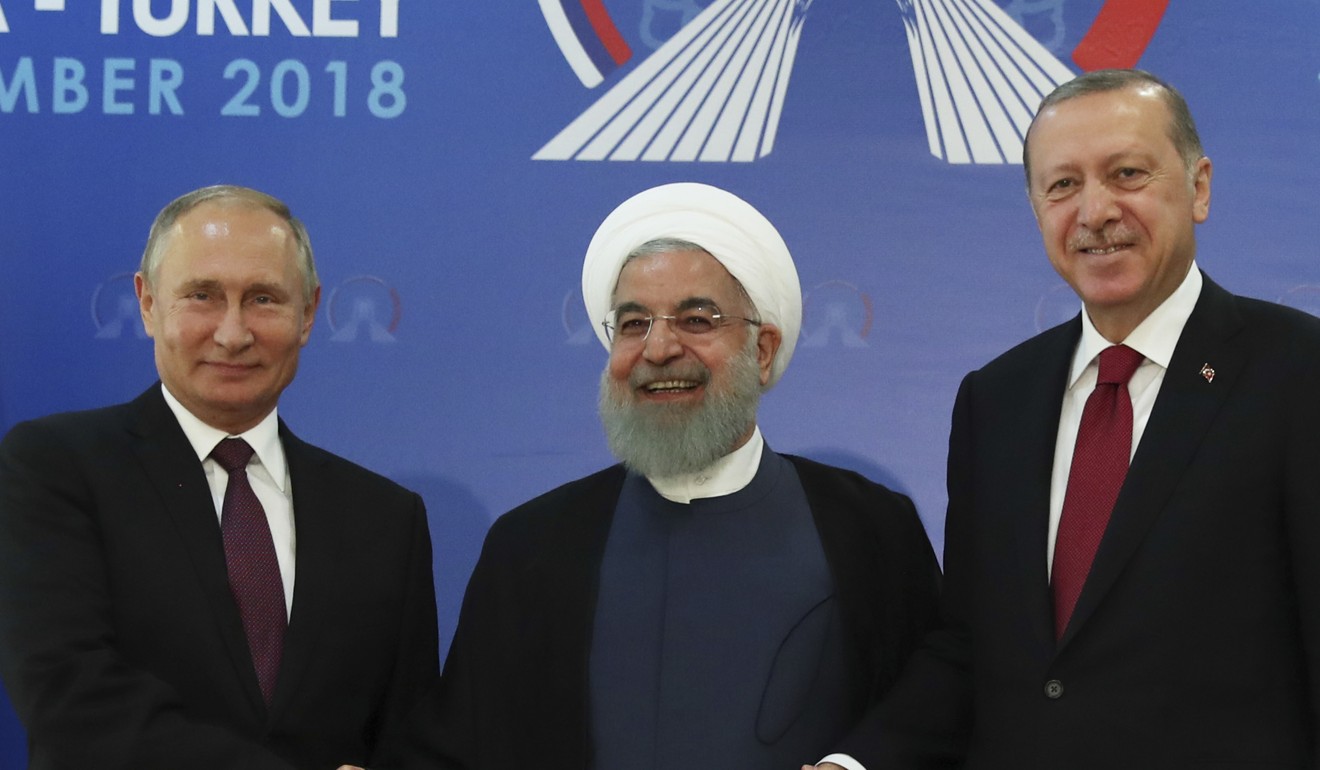
After Friday’s talks, the UN envoy for Syria told the UN Security Council there were indications that the three leaders intend to continue talking to avoid a catastrophe. But above all, the summit highlighted the stark differences among these allies, with Putin and Rowhani opposing Erdogan’s call for a ceasefire.
Moscow has long said anti-government groups in the last major rebel bastion were planning an attack on civilians, as Russian and regime strikes on the province intensify.
“Those taking part in the staging of provocations should be fully ready by the evening of September 8,” Russian military spokesman Igor Konashenkov said in a statement.
He said Moscow had evidence leaders of “terrorist” groups had gathered in Idlib and were being aided by the White Helmets volunteer rescue service.
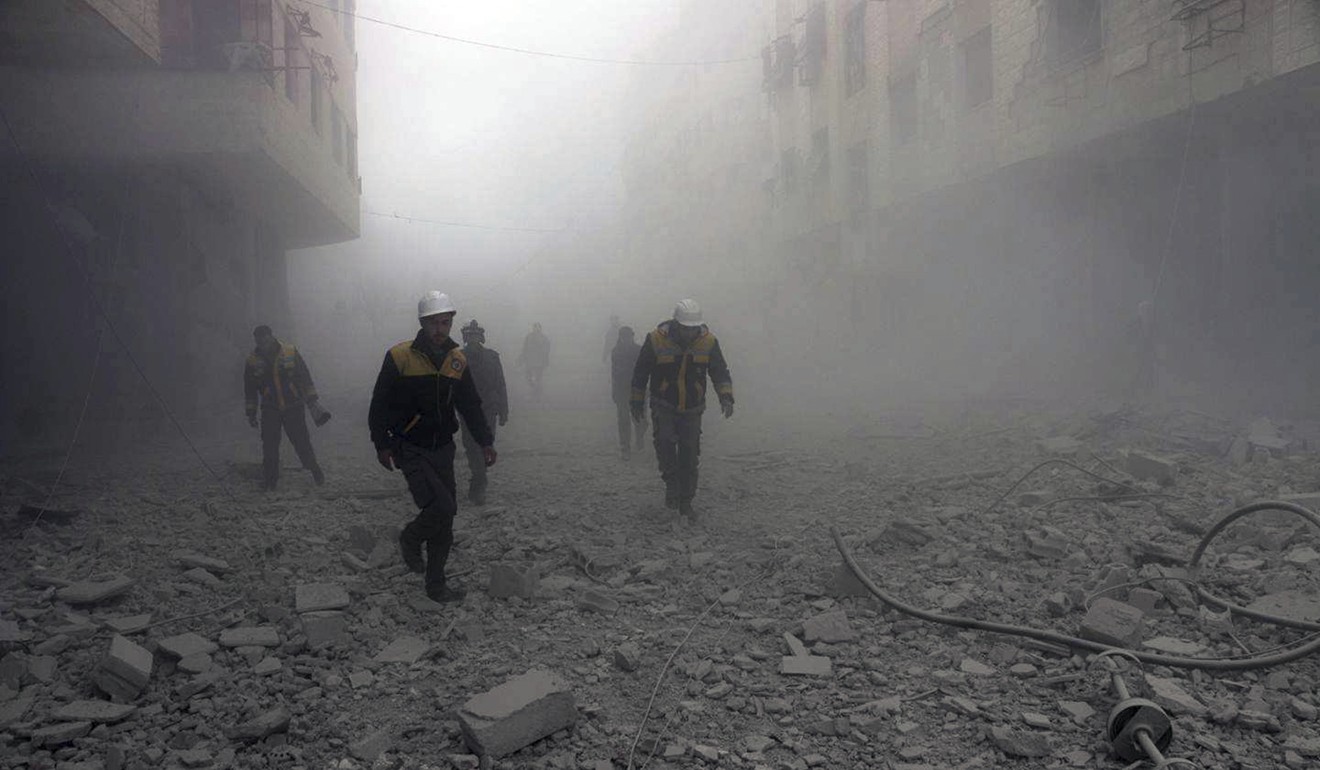
In April, the US, France and Britain launched joint missile strikes on Syrian targets in response to an alleged chemical weapons attack in the town of Douma that left scores of people dead.
Russia stuck by its ally Syria and angrily insisted the Douma attack was staged by the White Helmets.
The administration, which criticised former president Barack Obama for his inaction on Syria after the war started in 2011, risks appearing powerless to prevent the three nations’ plan to retake Syria’s last rebel-held area. It’s an operation that many warn will cause major bloodshed among a vulnerable population of 3 million people.
As they discussed the fate of Idlib, US Ambassador to the United Nations Nikki Haley was talking tough in New York, telling the Security Council that Washington would consider any assault on the province as a “dangerous escalation” of the conflict that has already claimed more than 400,000 lives and forced more than 5 million Syrians to flee the country.
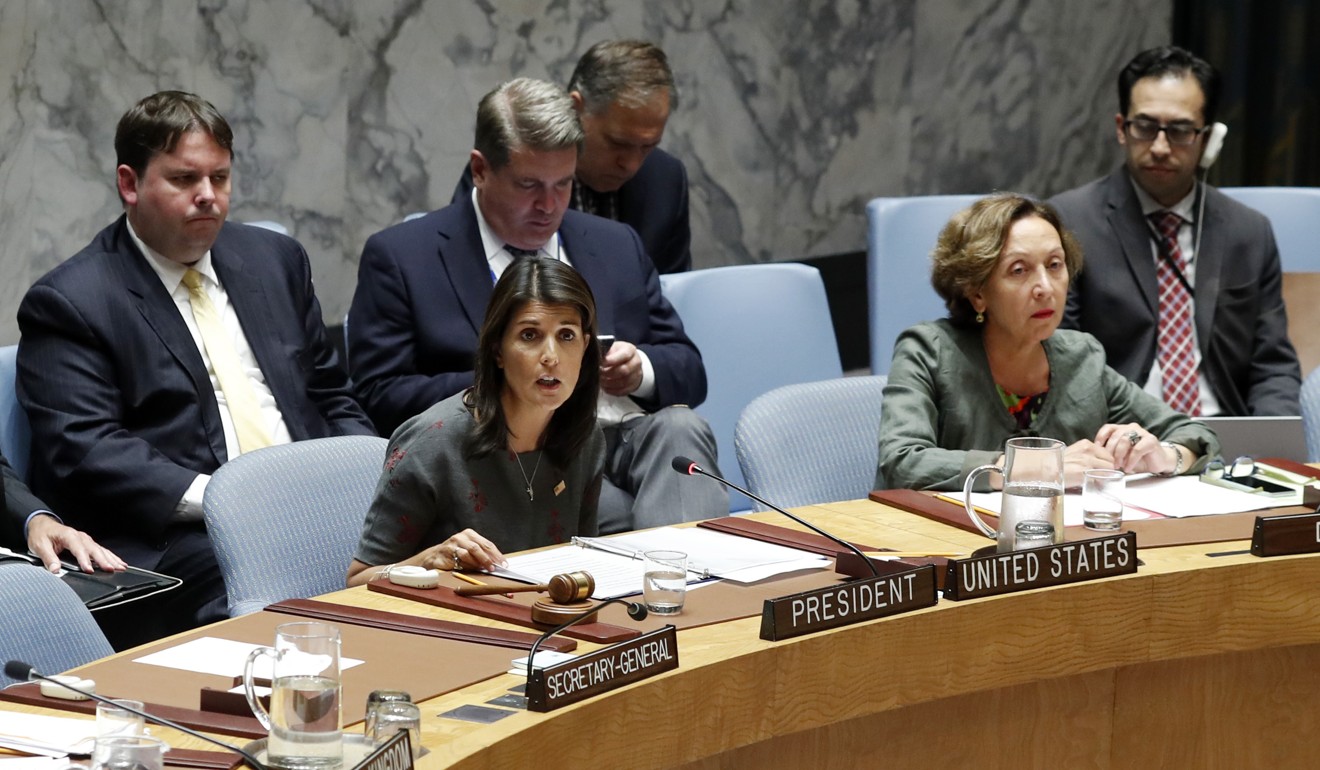
“If [Syrian President Bashar al-] Assad, Russia, and Iran continue, the consequences will be dire,” said Haley, who was chairing the council meeting. “The Assad regime must halt its offensive … Russia and Iran, as countries with influence over the regime, must stop this catastrophe. It is in their power to do so.”
Those remarks capped a week of rising US rhetoric opposing the Idlib operation.
On Monday, Trump tweeted: “President Bashar al-Assad of Syria must not recklessly attack Idlib province. The Russians and Iranians would be making a grave humanitarian mistake to take part in this potential human tragedy. Hundreds of thousands of people could be killed. Don’t let that happen!”
A day later, Secretary of State Mike Pompeo expanded on the tweet, and renewed calls for the conflict to be resolved through the UN-led Geneva process, which has been stalled for years. And on Thursday, the man Pompeo chose to try to get the Geneva process back on track, veteran diplomat James Jeffrey, reiterated Trump’s message, saying the US would use all the “tools” it has to respond to a chemical attack.
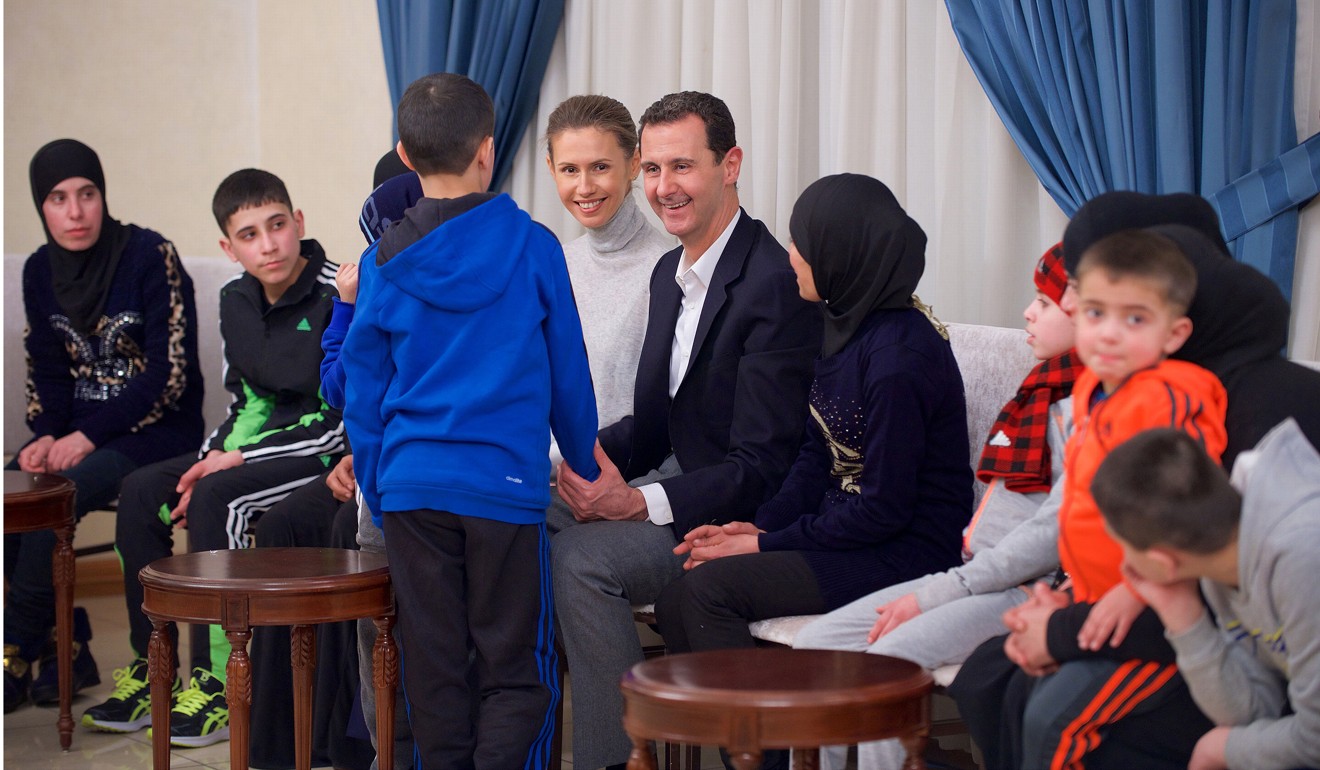
Another “tool” in the US arsenal is economic pressure. The US Treasury Department slapped sanctions on nine people and companies for assisting weapons or fuel transfers to the Assad government on Thursday. But sanctions have been ineffectual since they first began to be applied during the Obama administration.
Even American air strikes launched against the Assad government have had limited impact in the past.
Twice before the US has resorted to missile strikes in response to allege chemical weapon attacks, only to seemingly see them used again. As Syrian forces prepare for the assault on Idlib, US and UN officials claimed the weapons are being readied for the battlefield.
“The Trump administration is really at a Hail Mary moment,” said Nicholas Heras, a Syria analyst and fellow at the Centre for New American Security. Idlib is the last opportunity for the US to increase leverage in Syria, he said, and if the province falls before the Geneva talks, Trump administration efforts to re-engage with peace talks are likely to fail.
Heras warned that the Trump team is late to formulate a coherent Syria policy.
“It’s like trying to save the house as it’s burning down,” he said.